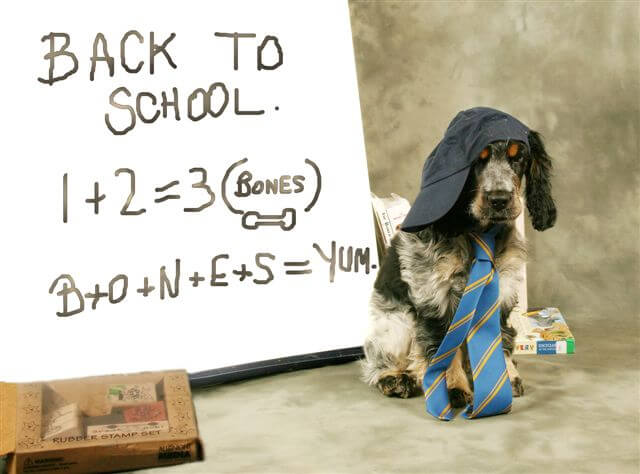‘Manners Maketh The Dog’
Imagine that you are playing in the local park with your two year old child, everything is fine, your little one is having a great time, playing safely and happily. Suddenly and out of nowhere, an older child, apparently alone, no parent in sight, appears, bowls over your toddler and takes away their precious toy? or worse, an older child appears and starts to manhandle your child in a way that is simply not acceptable? It is unimaginable that anyone could consider this behaviour to be alright and yet, inexplicably, it is the sort of thing that unsupervised dogs are allowed to do all of the time. Sadly it’s a problem that seems to be on the rise; the lone dog or just the oblivious owner are so often now responsible for a recognisable decline in manners in dog walking and in dog etiquette. In my fifty years as a dog owner, my twenty years as a professional dog trainer I believe that we have hit a new low in doggy manners but, as ever, it is the owners and not the dogs that are responsible and yet it is a problem that is so avoidable.
To exemplify what I mean, here is a case in point:
Out walking our elderly, blind and deaf, Cocker Spaniel, only last week, we encountered a Husky and a Labrador fresh from revelling in a muddy, woodland, pond. To describe them as boisterous would be an understatement, both dogs, both lovely animals, bounded up to us knocking our poor old boy to the ground then jumped up on my husband covering him in mud and pond water. It only took a sharp sit from me to bring them under control and we all patiently waited together for their owner to appear. A full three minutes later, around a corner, ear phones in, oblivious to the world and her dogs, a lady appeared. Against the fully audible rhythms of her music I tried to explain what had happened and suggested that it was less than acceptable to allow her dogs to run free out of hearing, sight and mind.
At first she didn’t even remove her ear phones, only when I requested that she remove them did she, somewhat grudgingly, haul them from her ears. Any hopes I held for an apology were very quickly dashed as she simply shrugged her shoulders and walked away, her dogs still on the loose. In fairness this incident was not the dogs fault . It was very apparent that they had neither been trained nor socialised but even more worryingly she clearly failed to understand the need for either. For her it was sufficient to shut out the world, retreat into her audio dimension and leave her dogs to do anything that they wanted.
This is not an isolated incident, we are all familiar the cry of: ‘he’s friendly he only wants to play’ however, fun is not an excuse for inappropriate behaviour. the outcome in this circumstance was a frightened elderly Cocker, an amount of unforeseen laundry and some serious indignation but it could have been much worse: What if a fight between the dogs had resulted? What if a dog had been hurt or a person bitten? What if ‘dog rage’ had ensued?
Dogs learn manners from socialisation just as our children do. A critical element of this is feedback to the dog or indeed the small child and the reinforcement of good behaviour. If your child misbehaves, you will soon let it know that is not good to continue in the same vein as there may be a possible consequences to their actions, consequences like the naughty step or removal of games privileges. Strangely, for some obscure reason, dog owners often miss or misunderstand this important point. Here is an actual example:
I often go to a café for breakfast, that allows dogs. Last time I was there the people in the table next to me clearly struggled with a small, very noisy, dog that barked continuously. Each time the dog barked the owner reached down, stroked the dog and said; ‘good girl….. ‘ and in doing so, through ignorance, reinforced the bad behaviour; you bark I say: ‘good girl’. They certainly didn’t mean this outcome but regrettably they knew no better and so the dog continued to bark and everyone in the café struggled to enjoy their breakfast.
One of the very first and one of the most crucial things we teach in puppy classes is how to give feedback to your dog. They need to know when you are pleased and equally when you are displeased. It’s not rocket science but this simple understanding can make a world of difference to how your dog behaves through out its life, how it is perceived by others and it can make the owners life a whole lot easier too!
‘Manners taketh the dog.’ It is instilling those manners that is the owner’s and trainer’s responsibility.

